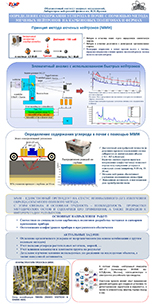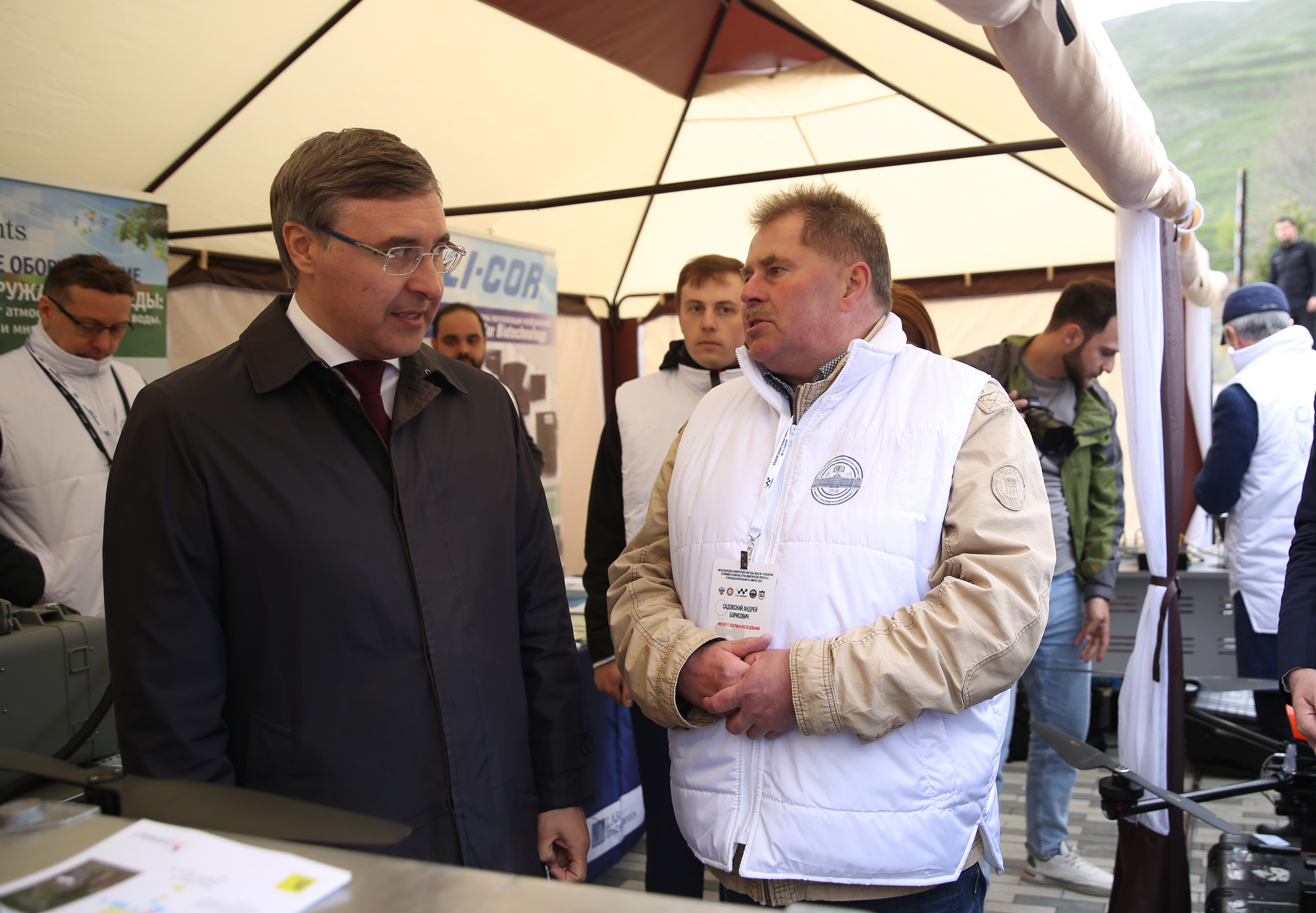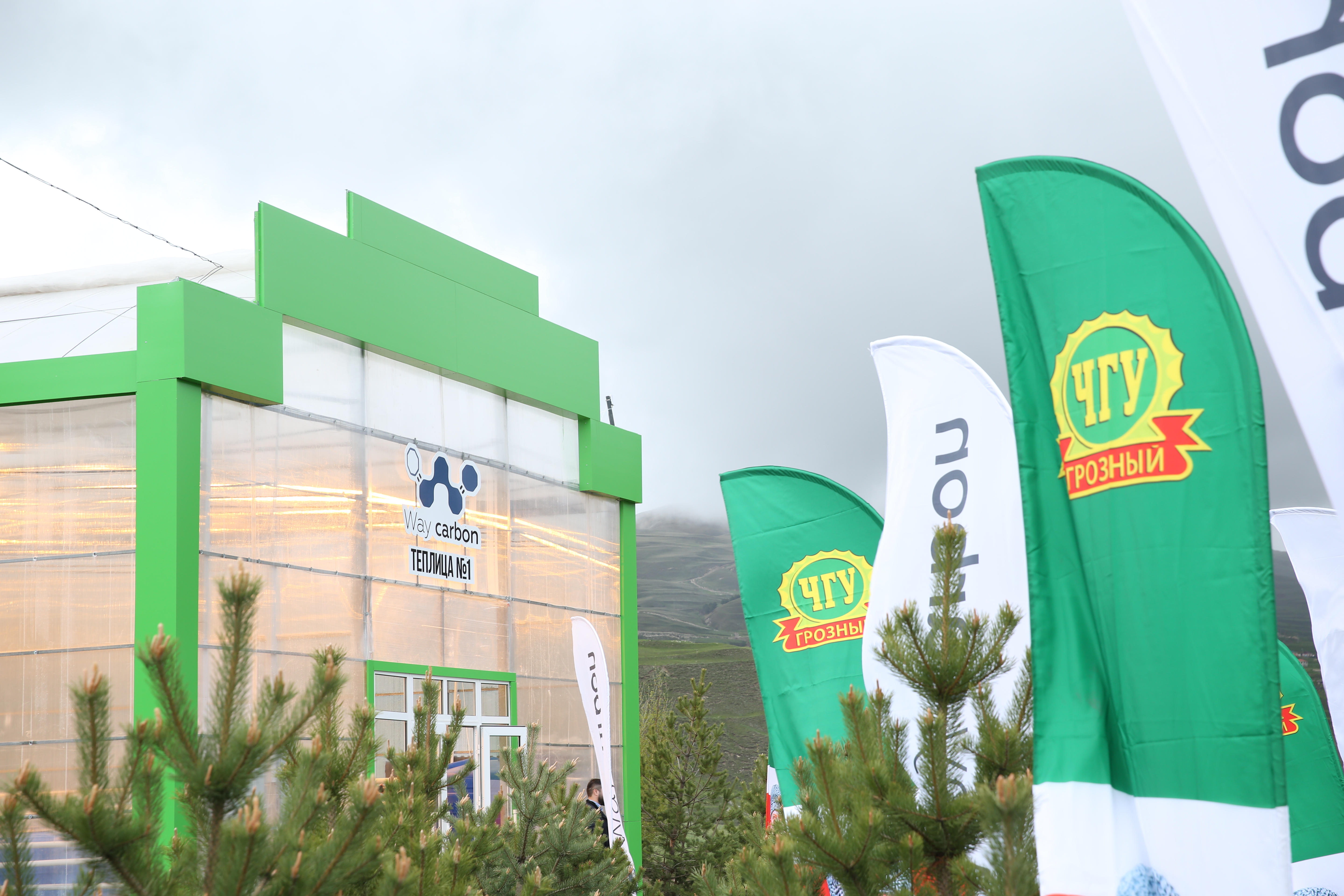JINR presented prototype device for mobile carbon analysis in soil
News, 27 May 2022
The presentation took place on 24 May at the opening of “Way Carbon”, the first carbon test site in the North Caucasus.
 The device has been developed on the basis of the tagged neutron method and can be mobile. This relatively small setup (transported by a car trailer or a golf cart) will be installed (or will move) over soil layers to analyse the carbon content in them. Thus, specialists will carry out the analysis directly in a filed without delivering samples to a laboratory.
The device has been developed on the basis of the tagged neutron method and can be mobile. This relatively small setup (transported by a car trailer or a golf cart) will be installed (or will move) over soil layers to analyse the carbon content in them. Thus, specialists will carry out the analysis directly in a filed without delivering samples to a laboratory.
One of the most important carbon reservoirs in terms of ecology is soil. The tagged neutrons method (TNM) is the only candidate for a non–invasive (without extracting samples) volume field method of monitoring carbon in soil. The method principle is based on the process peculiarities that take place in a compact neutron generator.
It is expected that the device will be based on this principle providing mobile/field implementation. A relatively small setup (transported by a car trailer or a golf cart) will be installed (or will move) over soil layers to analyse the carbon content in them. Thus, specialists will carry out the analysis directly in a filed without delivering samples to a laboratory.
 A. B. Sadovsky (DLNP, TANGRA) is telling Minister of Science and Higher Education of the Russian Federation Valery Falkov about the method potential. Photo: Kadyrov Chechen State University
A. B. Sadovsky (DLNP, TANGRA) is telling Minister of Science and Higher Education of the Russian Federation Valery Falkov about the method potential. Photo: Kadyrov Chechen State University
A non-invasive characteristic allows immediately obtaining information about the carbon content in a significant volume of soil at a certain depth. It is that feature to which the main difficulty is related. The method is very different from those used today. It is necessary to develop methodological framework and ways of its application, as well as approaches to the result interpretation. Participants of the TANGRA collaboration from FLNP, DLNP, VBLHEP, LRB, and a number of partner scientific centres in close cooperation with specialists of carbon test sites will solve these tasks together with the optimisation of TNM-based setup implementation.
Head of the Ministry of Science and Higher Education of Russia Valery Falkov took part in the opening ceremony of the first carbon test site “Way Carbon” in the North Caucasus. Together with the Minister, Special Presidential Representative on Climate Issues Ruslan Edelgeriyev visited the new site.
 Photo: Kadyrov Chechen State University
Photo: Kadyrov Chechen State University
Carbon test sites of the Ministry of Science and Higher Education are technological platforms created in regions of the Russian Federation for testing technologies aimed to control the balance of climatically active gases, monitoring the sequestration potential of various ecosystems. Way Carbon is a joint project of Kadyrov Chechen State University and Grozny State Oil Technical University. It solves a number of strategic agricultural and climatic problems.